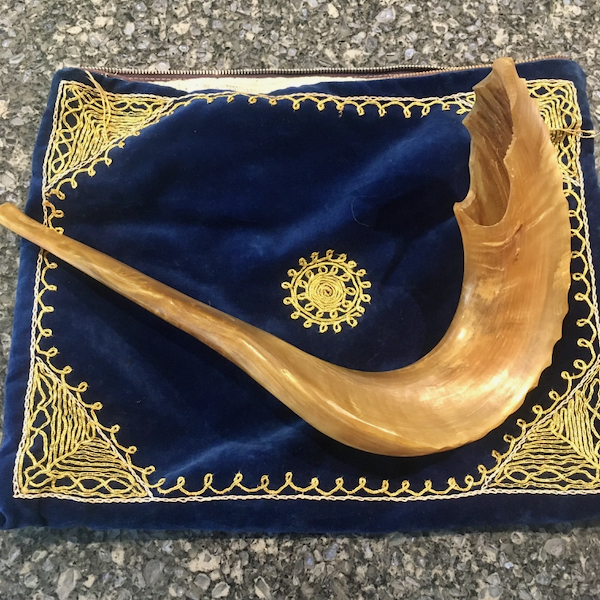The year 5781 in the Jewish calendar begins this Friday evening, Sept.18. The season is called the Days of Awe, beginning with the two days of Rosh Hashanah, the “head of the year,” followed 10 days later by Yom Kippur, the Day of Atonement, then five days after that with the seven-day fall harvest festival of Sukkot.
Normally, it’s a season of prayer in packed synagogues, singing melodies believed to be over 2,000 years old, followed by massive family get-togethers to see the newest cousins, check in on the grands and great-grands, and, in general, catch up with family and friends. Meal after meal, service after service, day after day, the entire period helps us reconnect to family, community, and faith in a way that is unique in the Jewish calendar.
The shofar, a ram’s horn, is sounded daily at morning services a month in advance of the new year, calling the community together again, reminding us to turn our minds, our hearts, and our souls back to what is important. On Rosh Hashanah, the shofar is blown dozens of times throughout the services, an urgent reminder to return, to refocus, to recommit. It is then sounded one last time, for one extended blast, at the very end of Yom Kippur, with the sound hopefully echoing in our ears as a guide in the new year.
This year, of course, there will be no family gatherings. My family, scattered across the eastern seaboard and in Israel, will continue to shelter in place. For the first time, my parents will not be attending the synagogue they helped found 40 years ago. They have located an outdoor service in a neighboring back yard, which can safely seat 15 masked, socially distanced people.
The shofar blowing is particularly fraught this year, since blowing into a horn in a crowd of people is risky. It will be done far enough away for safety but close enough to hear clearly. If it rains, they will stay home and hope that the weather clears for the second day. If not, not.
Imagine skipping Thanksgiving, Christmas, and New Year’s gatherings — that’s what this year will be like in my family and for many Jews around the world.

And yet. My brother has shipped me my parents’ shofar, long used by my dad but now idle due to his increasing frailty, so that I can try to blow it on my own this year. If you happen to hear something that sounds like a cow in distress coming from the hills behind the Stop & Shop, don’t call Ruth Anne; it’s just me torturing the shofar and my neighbors. Apologies in advance. I promise to be brief.
Not enthused with the idea of Zoom services, I see this year as an opportunity to reconnect with tradition in a very personal way. I will wander through my prayer book, seeking meaning and connection as I go. In a year full of frustrations, restrictions, and threats, in this one thing, at least, I will be entirely free. Missing the formal framework and standard structures, going it alone out on the tip of Cape Cod with my father’s shofar and my prayer book, I am looking forward to welcoming the new year in this new way.
This is actually a very traditional approach. Throughout history, through wars, famines, exiles, crusades, expulsions, pogroms, mass migrations, and genocide, Jews have learned to reconnect with each other and our traditions, while always harkening back to “Moses on Mount Sinai.” Judaism is described by rabbinic commentators as golden links in a chain stretching back thousands of years, each one precious and different and equally important, and always connected to our collective origin.
May these very different Days of Awe allow you to reconnect in your own way to your traditions, family, and community. Have a happy, healthy, and safe new year.
